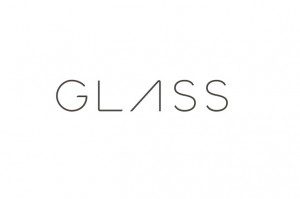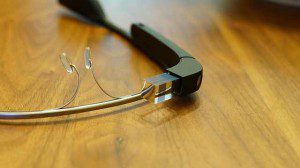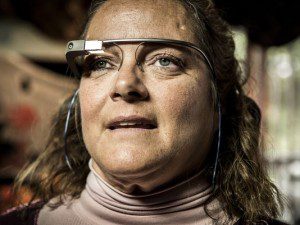How will Google Glass help Disabled People?
Google Glass is a game changing technology that we will look back to and wonder how we did without it, like we do with mobile phones and WiFi!
New developments design for mainstream usage are in fact becoming more inclusive and giving more options for people living with disabilities. Google Glass is one such piece of equipment.
What is Google Glass?
Google Glass is a wearable computer which comes with an optical head-mounted display which is working towards the full development of a ubiquitous computer. Google Glass is being developed as part of the larger Project Glass research and development project. It takes smartphone technology and makes it even more accessible. It displays information just like a smartphone in a hands free format which allows for communication with the internet through natural voice commands.
Google Glass is fitted with a touchpad on its side and it allows users to control it by swiping thorough its interface on the screen. The interface is much like the standard timeline we’ve come to be familiar with and this swiping motion is the only physical action needed to operate the Glass.
Voice actions are the main way of controlling the device and activating the Glass is as simple as tilting the head upwards (to approximately 30° or a preferred angle that can be altered) or tap the touchpad and say ‘OK Glass.’ Once the Glass is activated only voice actions are required and you can access the range of different facilities offered by the product. Everything from ‘Send a message to Mum’ to ‘get directions to the nearest ATM’ can be found. Search results will be filtered and then read back to the user so they can choose the most fitting one.
Google use innovative bond conduction through a transducer in the product which renders the sound virtually inaudible to others around you, allowing for a private yet interactive computing experience.
The Google Glass headset can be simply connected to your smartphone and the display is a small information screen which hovers in front of one eye. Experts in the field are describing this as the first development in what will be the next big trend – wearable technology. Rather than slipping your smartphone into your pocket you could find you’re utilising glasses, watches and other wearable devices in the near future. Prospective analytics suggest that wearable tech has the potential to be big business with sales projections for the Glass reaching 9.6 million by the end of 2016.
Google Glass for Disability
For disabled people living Google Glass presents an even bigger opportunity. An opportunity to make their environment more accessible through information. The Glass is much more than a new toy, it can be life affirming or even life changing. Technologists suggest that speech recognition is reaching new levels of precision. They’re actually working towards profoundly deaf people being able to see real-time transcripts of what friends are saying to them in the Glass’ prism. It really could revolutionise communication for many.
Equally the Glass could also be extremely useful for people with visual impairments – with suggestions that it may be possible to take walking directions from the Glass further opening up the world for them.
Below we’re looking at two of the early Google Glass adopters, both of whom are disabled and have had their stories well publicised. How the Glass has helped their lives is truly inspirational and is a positive example of how they can be instrumental for other people living with disabilities in the future.
Tammie Lou Van Sant
Tammie Lou Van Sant was a keen photographer before a car accident left her living with permanent paralysis. The Google Glass headset has given Van Sant the chance to point and shoot again as she can simply give voice commands. It has allowed her to once again enjoy one of her favourite past times as well as its other functionalities being highly useful such as answering her own phone calls, replying to texts and making small, solo trips out thanks to Google Maps.
Alex Blaszczuk
Alex Blaszczuk is another individual living with permanent paralysis. She submitted her story to the #ifihadaglass competition and was awarded her glass this way. She highlighted how the glass would help her to ‘thrive with physical limitations’. On receiving her Glass she was able to find a new form of self-expression and the video below shows exactly how much of a positive impact it has had upon her life.
Getting Google Glass
Google Glass doesn’t have an official launch date although recent queries to Google on November 8th suggest it may be out by early 2014. There are no official announcements now so rather than thinking about when you’ll get your own it may be worth beginning to save up!
Google Glass has the potential to revolutionise the lives of millions of disabled people. Some may be able to recapture hobbies and interests that they remember before the effects of an accidents whilst others may enjoy completely new experiences, that they have never had the opportunity to participate in.
Google Glass for Disability Updates
We intend to update this post with people’s personal experiences and applications of the Glass as they develop. Please leave a comment if you have something for us to add.




